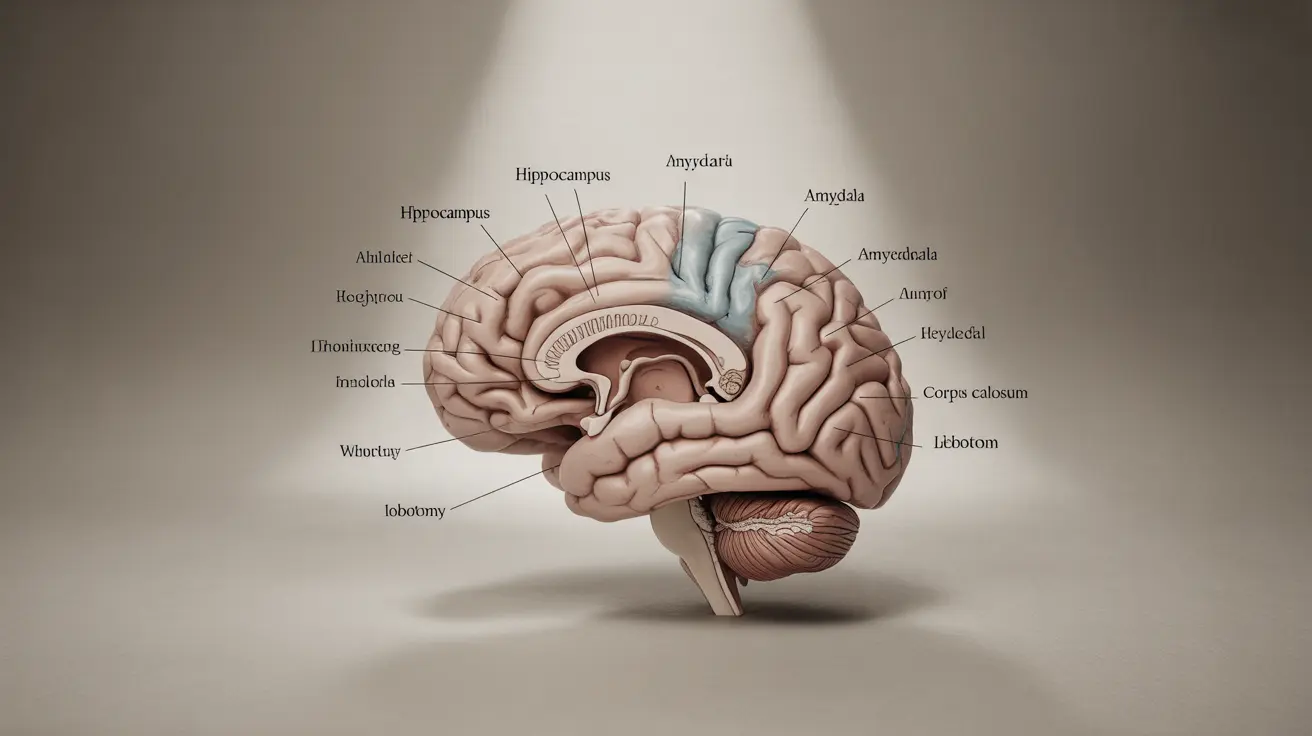A lobotomy was one of the most controversial psychiatric procedures in medical history, involving the surgical manipulation of brain tissue to treat mental illness. This radical procedure, widely performed in the mid-20th century, fundamentally altered patients' personalities and cognitive functions, leaving a dark legacy in the history of psychiatric treatment.
Understanding what happens when someone is lobotomized provides crucial insights into both medical ethics and the evolution of mental health treatment. This comprehensive examination explores the procedure's effects, historical context, and why it was ultimately abandoned in favor of more humane treatments.
The Process and Brain Regions Affected
A lobotomy involved severing connections in the prefrontal cortex, the brain region responsible for personality, decision-making, and emotional regulation. The procedure typically used one of two main approaches: the traditional prefrontal lobotomy or the faster transorbital technique, infamous for using an ice pick-like instrument.
The surgery targeted the following brain areas:
- The prefrontal cortex
- Neural pathways between the frontal lobes and thalamus
- Connections to the anterior portion of the frontal lobes
Immediate Effects on Personality and Behavior
When someone underwent a lobotomy, they experienced dramatic changes in their mental and emotional state. The immediate effects often included:
- Reduced emotional responses
- Decreased initiative and spontaneity
- Impaired ability to plan and organize thoughts
- Flattened affect and emotional expression
- Changes in social behavior and impulse control
Historical Applications and Patient Selection
Doctors primarily performed lobotomies on patients with various mental health conditions, including:
- Severe depression
- Schizophrenia
- Anxiety disorders
- Obsessive-compulsive behavior
- Chronic pain conditions
The procedure gained popularity in the 1940s and 1950s, with thousands of patients undergoing the surgery before its eventual decline.
Long-Term Consequences and Complications
The long-term effects of lobotomy were often devastating and irreversible. Patients frequently experienced:
- Permanent personality changes
- Cognitive impairment
- Memory problems
- Reduced emotional capacity
- Physical disabilities
- Inability to live independently
The End of Lobotomy Practice
Several factors contributed to the discontinuation of lobotomies:
- The development of effective psychiatric medications
- Growing awareness of the procedure's devastating effects
- Ethical concerns and patient rights advocacy
- Improved understanding of brain function
- The emergence of less invasive treatment options
Frequently Asked Questions
What happens to a person's personality and emotions after a lobotomy?
A person's personality typically becomes significantly altered after a lobotomy, with reduced emotional range, decreased initiative, and impaired decision-making abilities. Many patients experience a flattening of affect and lose their ability to experience deep emotions or maintain complex relationships.
How is a lobotomy performed and what parts of the brain are affected?
A lobotomy involves cutting connections in the prefrontal cortex, either through traditional surgical methods or the transorbital approach. The procedure primarily affects the frontal lobes and their connections to the thalamus, disrupting emotional processing and executive function.
What mental health conditions were historically treated with lobotomy?
Historically, lobotomies were used to treat various mental health conditions including schizophrenia, severe depression, anxiety disorders, and obsessive-compulsive behavior. The procedure was often used as a last resort for patients who were considered treatment-resistant.
What are the common risks and long-term effects of lobotomy surgery?
Common risks included personality changes, cognitive impairment, seizures, infections, and death. Long-term effects often included permanent changes in behavior, reduced emotional capacity, memory problems, and various physical disabilities.
Why are lobotomies no longer used as a treatment for mental illness today?
Lobotomies are no longer performed due to their devastating effects, the development of effective psychiatric medications, ethical concerns, and improved understanding of brain function. Modern psychiatric treatment focuses on less invasive and more effective therapeutic approaches.




